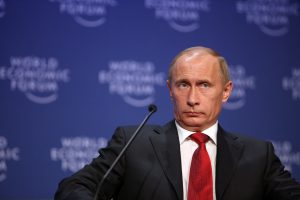It’s done now. Even in Germany, there are two right wings in politics. Even though the taboo inherited from Nazism is so strong there, the alliance sealed in Thuringia between the AfD, the Liberals and part of the Christian Democrats has shown the existence of a right wing that accepts a rapprochement with the extreme right while Mrs Merkel and the CDU leadership find it unacceptable.
For the time being, it is this second right wing that has prevailed. They will be voting again in Thuringia, but how can we not see that the Chancellor is about to leave, that the minister whom she had made her successor had to resign because she was unable to control the situation and that this debate is only just beginning?
In Germany, as in the whole of Europe and in a major part of the world, a large part of the right is moving towards the far right or is becoming the far right, and the whole post-war political situation is being turned upside down.
Marginalized since the Nazi defeat, nationalism is making a strong comeback. Driven by a hatred towards others, which has nothing to do with the love of homeland, which is patriotism, nationalism is now redrawing the political chessboard and taking precedence over the ideas of multilateralism and international cooperation. As before the Second World War, force is more important than the law, and we see together Mr Putin making a territorial annexation in Europe that has not been seen for 75 years; Mr Xi setting up bases on disputed islands in the South China Sea and Mr Trump deciding that occupied territories are no longer Palestinian but Israeli.
With the return of protectionism and the withdrawal from the disarmament agreements inherited from the Détente, nationalisms are weighing down the atmosphere so much that states have to reconsider the measures to reduce military expenditure what were adopted after the fall of the Berlin wall. The possibility of new wars becomes, in a word, so real that the question is to know whether it is still possible to stop this race towards the abyss.
The answer is yes, but on three conditions.
The first is to no longer underestimate the danger and to admit that nothing, absolutely nothing, is more important today than the means to avert it.
The second is to affirm the European Union as a political power, capable of exerting influence on the international scene and, if it has to do so, of defending itself on its own.
The third is to work, without wasting a moment, on the necessary convergence of the Greens, social democracy and the centre-right around a European consensus based on the relaunch of investments to finance the ecological transition, the rearmament effort and, thus, the growth needed to halt the decline of the middle classes.
It all hangs together. Without this relaunch, there will soon be no Union, because the nationalists will win and, without a Union, there will be no peace but war.


